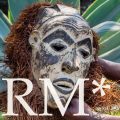This first phase of the project centers on the interpretation of collections within the context of Portugal’s colonial history with Brazil, writes Brazilian researcher Letícia Stallone.
‘My first encounter with the National Museum of Ethnology’s reservas visitáveis (visitable collections) in Lisbon challenged my expectations.
It was a site of active engagement, where history is being continuously reinterpreted. Explored not only by scholars and the general public but also by Indigenous visitors — those who hold the deepest knowledge of these objects.
A transformation in the museum stripped them of their original spiritual or ritual significance, recasting them as museum artifacts within a Western epistemology.
This distinction — possibly irrelevant to Indigenous peoples — underscores the importance of a collection stewarded by professionals well-versed in decoloniality, provenance, and the complexities of ethnographic display.
‘The Cabinet of Curiosities at the Natural History Museum of the University of Coimbra highlights precisely why re-examining colonial collections is so important.
Some of the objects displayed here are said to come from collections like the one in the Academia de Ciências, assembled by the Brazilian naturalist Alexandre Rodrigues Ferreira. However, there is no definitive way to verify this, as the exhibition lacks captions or provenance details…


